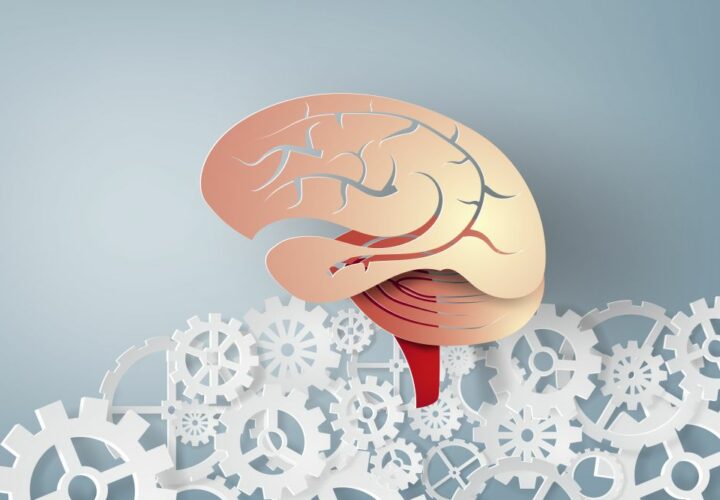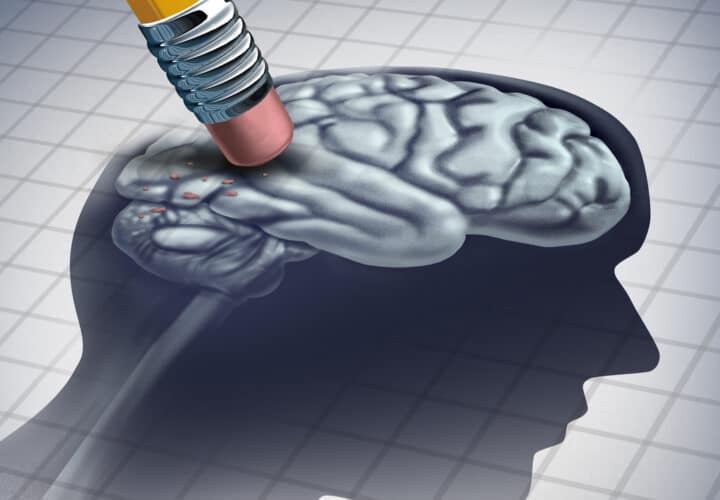Dementia and depression may be more closely linked than they appear. While scientists aren’t sure what exactly causes dementia, depression falls into a category of factors that all have been shown to be linked to the risk for developing dementia—things like obesity, smoking, education level, high blood pressure, age itself and gender are all factors that sway the risk for dementia. And according to a new study, depression isn’t just a disease that affects mood—it can also cause a spotty memory.
In a review of over 1,000 seniors over five years, University of Miami researchers found that those with symptoms of depression—who answered affirmatively to questions like “I was bothered by things that usually don’t bother me” and “I did not feel like eating” at the beginning of the study—scored lower on tests that measured episodic memory. That kind of memory is the ability to recall specific events or experiences, like what a person had for dinner last night or a family member’s wedding day.
And the link between dementia and depression did not end there. Not only did those with higher depression scores fare worse on memory tests, scientists also found their brains were actually smaller on average, confirmed by an MRI. And the 22 percent of participants who were considered depressed had a 55 percent greater chance of small vascular lesions in the brain, an important indicator of brain health.
“Small vascular lesions in the brain are markers of small vessel disease, a condition in which the walls in the small blood vessels are damaged,” said study author Adina Zeki Al Hazzouri, Ph.D. “Our research suggests that depression and brain aging may occur simultaneously, and greater symptoms of depression may affect brain health through small vessel disease.”
Many studies have linked blood vessel damage to vascular dementia. When blood vessels can’t deliver oxygen to areas of the brain, neurons die. Sometimes, that can lead to a stroke, which doubles or triples the chances of dementia.
But, scientists say there’s hope for those concerned about dementia and depression. Both the changes that lead to vascular dementia and depression can be treated, which may reduce the risk for dementia.
“Since symptoms of depression can be treated, it may be possible that treatment may also reduce thinking and memory problems,” said Al Hazzouri.
In fact, treating depression lowers the risk of Alzheimer’s disease, according to a study from Boston University School of Medicine. In a study on dementia and depression, researchers found that patients with depression and mild cognitive impairment, which is often considered the first sign of Alzheimer’s, could be improved by getting treated for depression.
Both the University of Miami study and the Boston University study were observational, meaning it showed a correlation between depression and thinking problems but not a direct cause-and-effect relationship. Scientists can’t draw a direct line between dementia and depression, but the association is there. It’s possible that those who start experiencing problems with their memory trigger depression—even those who are not showing signs of memory loss may be experiencing changes in the brain associated with dementia that may lead to depression.
There wasn’t evidence that thinking skills worsened during the Miami study, but that may be because it was only five years.
The findings join a growing body of research that show mental conditions like anxiety and depression may put people at greater risk for dementia—or the conditions may be an early sign of dementia, according to some research. There is also evidence that benzodiazepines, a group of medications used to treat anxiety, may also put people at a greater risk for dementia when taken for longer than one month at a time. In addition, poor sleep, which is a symptom of anxiety, has also been linked to an increase in risk. Decades before a diagnosis, scientists observed that people who have a build of beta-amyloid, the toxic protein that accumulates in Alzheimer’s disease, were more likely to experience a change in circadian rhythms in mid-life.
Studies have shown that depression doesn’t just affect the brains of older people; it actually speeds up brain aging at any stage in life. In a study of 71,000 cognitively normal people without dementia, scientists found that those with depression earlier in life were more likely to face a steeper cognitive decline as they aged.
But dementia and depression is not a doomsday sentence. The connections are still just observational, not direct. Plus, there are steps you can take to combat both dementia and depression at the same time: exercising, maintaining a healthy diet, undergoing cognitive behavior therapy and staying social and active have all been shown to lower the risk of dementia and depression.
Scientists hope the connection between dementia and depression will act like a red flag that encourages patients to get treated and doctors to recognize how serious a mental illness can be.
“With as many as 25 percent of older adults experiencing symptoms of depression, it’s important to better understand the relationship between depression and memory problems,” said Al Hazzouri.
This study was published in the journal Neurology.



Thank you for this article.
My father if 87 has dementia, stage 2 bladder caner and has had several TIA since his stroke 10yrs ago. He has lost alot of weight uwt has food appetite.
What can we do to help him with quality if life at this stage.